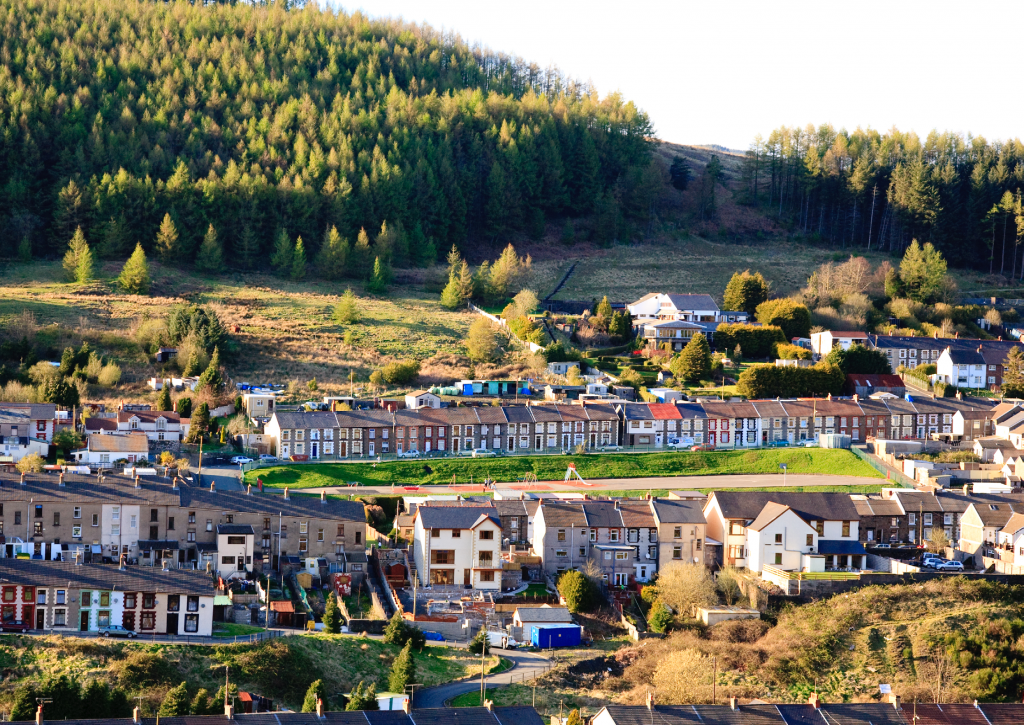Tackling the climate and nature emergencies can create a better, fairer future if local people are put at the heart of policy making, argues Becca Massey-Chase.
The first of its kind in Wales, the Environmental Justice Commission’s South Wales Valleys Climate and Fairness Panel was a citizens’ jury of 19 residents who produced 30 recommendations for the practical steps needed to tackle the climate crisis and restore nature, in a way that is fair for everyone.
Including a fair economic settlement for Wales and investment to support people to be able to work and access what they need locally, these recommendations show how positive a move towards a greener Wales could be for the valleys.
Tackling the climate crisis and restoring nature will require a transformation of our carbon-dependent economy.
IPPR’s Environmental Justice Commission was founded on the belief that this transformation should also create an economic model that addresses inequity and social injustice and is resilient in the face of future global shocks.
The transition will need to be handled differently in different places, with plans shaped with distinct communities in mind.
“The jurors represent the valleys in terms of age, ethnicity, gender, qualification level and whether they live in an urban or rural area.”
This requires a place-based approach to policy making, where local people are involved in shaping the future of their area.
The South Wales Valleys Climate and Fairness Panel came together online for over 20 hours of deliberation across eight sessions over six weeks.
Collectively, the jurors represent the valleys in terms of age, ethnicity, gender, qualification level and whether they live in an urban or rural area.
They also had a range of views on how important climate change was to them at the start of the process.
So, having heard from a range of different experts and brought their own knowledge and experience of life in the valleys to their deliberations, what do they want to see happen?
Their recommendations are wide-ranging, ambitious, and action-orientated, with a central focus on wellbeing and inclusivity.
Innovative. Informed. Independent.
Your support can help us make Wales better.
They make it clear that things will need to be done differently if no people or places are to be left behind.
The panel call for a step-change in government investment over the next ten years, targeted funding to support those communities who may be at risk of losing jobs through the transition, and greater funding for local communities to empower them to lead action at the local level.
“There is a sleeping dragon here waiting to breathe fire into a recovery which will help the planet as well as the UK” (Juror, South Wales Valleys Climate and Fairness Panel)
They put fairness at the heart of action to address the climate and nature emergencies.
“This group also wanted to see a massive shift away from car dependency, with no new road building… and car-free city centres.”
For them, this includes more, better work in the valleys that pays a real living wage, and lifelong education and training linked to greener industries. They also want more low-carbon jobs, such as caring, to be recognised as ‘green’.
They believe that the government must address the limitations that poor transport and digital infrastructure places on work opportunities. This means better broadband, investment in public transport and, crucially, more work and amenities local to home.
Showing that public acceptability for radical action is higher than politicians might think, this group also wanted to see a massive shift away from car dependency, with no new road building without clear public benefit and car-free city centres, except for those with disabilities.
The jurors of the South Wales Valleys Climate and Fairness Panel also want to see a new economic strategy for the area focused on creating ‘anchor towns’ with local work hubs for remote working and revitalised high streets to encourage people to shop locally and sustainably. This should all be backed up with investment in which communities have a stake.
In a lesson for policy makers, the panel are clear that “we need to get the timing right so people don’t experience the negative impacts before they see benefits.”
When it comes to greener travel, they “don’t want to punish anyone for where they live, so benefits and subsidies are better than sanctions and penalties”.
“I’m hopeful that this is being talked about but it’s important that it doesn’t stop here.”
Reflecting their own positive experiences of the process they went through, they also want to see citizens’ juries used to create local action plans, more education in how to engage in democratic processes, more avenues for participation, and mandatory local engagement in local government decision making.
We know that there will need to be investment and government action to move away from high carbon industries in south Wales; it is not a matter of if but how this will happen.
The valleys have been at the sharp end of previous public policy failures to support and manage industrial transitions in the UK, and these jurors say that this time, “people need to feel that they are part of the change…and for it not to feel like we are having things done to us”.
The coming years will see more policies and plans aimed at moving us towards a carbon neutral and nature rich economy.
Ensuring that they are fair and just, and that there is public consent for the changes, must mean involving these communities in decision making.
As one of our jurors said: “I’m hopeful that this is being talked about but it’s important that it doesn’t stop here.”
You can read the full recommendations from the South Wales Valleys Climate and Fairness Panel, in their own words, in this new report from IPPR.
All articles published on the welsh agenda are subject to IWA’s disclaimer.





